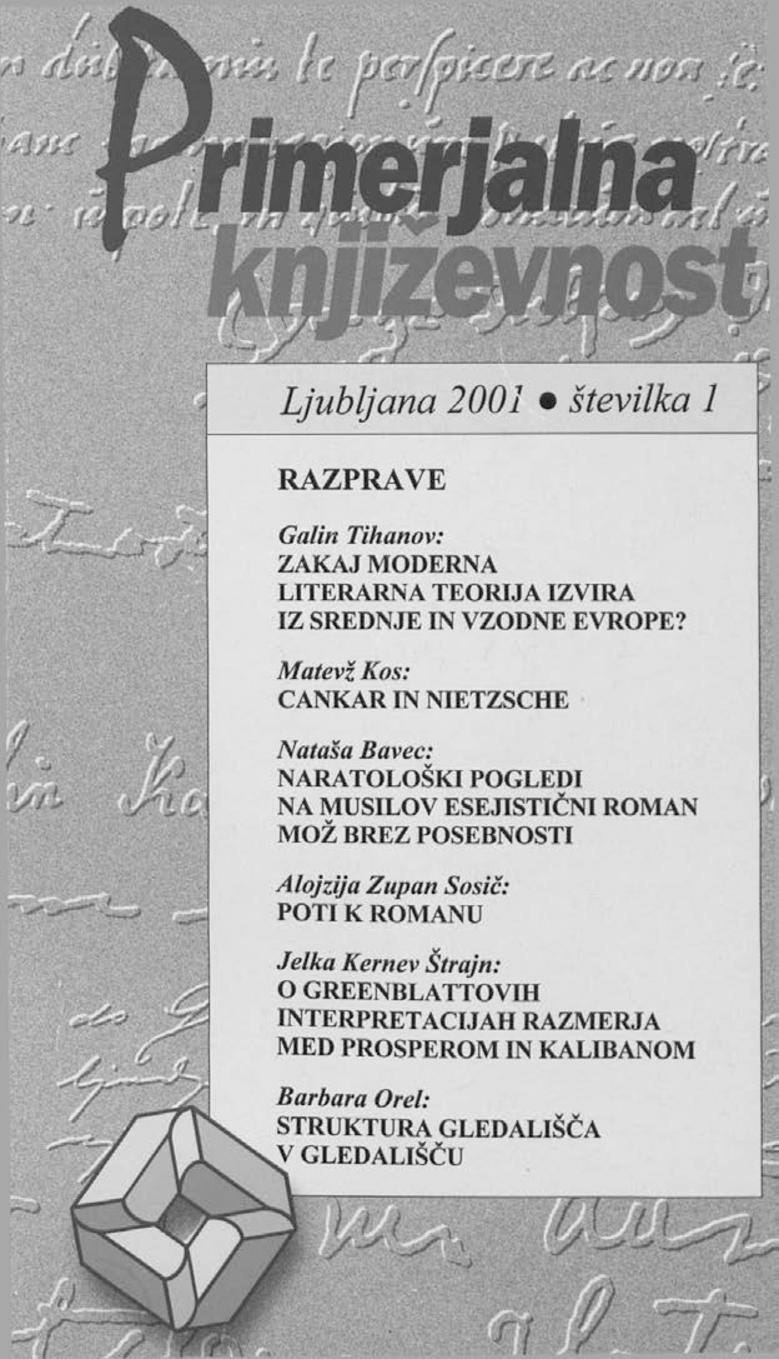Narratological Aspects of Musil’s Essay Novel Man Without Qualities
Keywords:
literary genres, essay novel, narratology, narrative theory, Austrian literature, Musil, RobertAbstract
Through a prism of narratology this article elucidates a special inter-generic form of narration, the essay novel, which is created through an interaction between a semi-literary, non-fiction genre, i.e. essay and its structural preforms, and a novel. This is a non-conventional type of novel in which its essential pre-requisite, to have a narrational structure as a succession of fictional events, is loosened and deteriorates, since the story line is interrupted by non-narrational segments, i.e. essayistic musing by the narrator and characters. The starting point of the article is the realization that within narratology the problem of non-narrational segments – with the exception of description – remains almost un-researched within the wider narrational context. The specific internal structure of this sub-genre is therefore defined here in an empirically inductive way, through an analysis of a model of an essay novel, Musil’s Man Without Qualities, which is widely accepted as such in literary history. First, those aspects of Musil’s novel are analyzed which link it with other narrational texts. Here I followed the narratological classification of such texts on three basic levels: that of story line, the text as a means of narrating a plot and that of narration as a process of producing a narrative. The non-fictional, essayistic parts of Musil’s novel are also simultaneously included in this basic narratological scheme, so that their functional interrelation with the constituent bases of the narrative is evident: the time of the story and text (an influence that essay features have on the tempo of the narrative), the narrator, literary characters and the presentation of their spoken discourse (who provides essay passages in the novel and in what verbal form these are uttered), the narrator’s focus and so on. Special attention is paid to the definition of the relation between the course of events and essay passages in the novel. It was important to see to what extent essay passages are integrated into the narrational whole, how events and essayistic parts alternate, are intertwined and linked, what ensures the coherence of the experiential and ideal world, and, most importantly, what role essay elements play in the development of the plot, where a comparison with the function of description in a novel, as defined by M. Bal, proved very useful. The function of essay in a narrative context is similar to that of description: in an explicit way it elucidate what happens in the novel, they can predict the further development of a story, sometimes cause tensions between the characters’ relationships, and therefore indirectly become an agent which triggers the action. A definition of the essential content and structural formal features of an essay or essay writing procedure and the mode of thought is also indicated, but more attention is paid to the theory developed by Peter Zima in his Textual Sociology. Central to the theory is the notion of semantically ideological ambivalence, with which specific features of essay discourse are explained and demonstrated in Musil’s novel. The article also briefly touches upon the question of how the notion of a novel’s essayization has been evaluated by literary science and criticism.References
Bachmann, Dieter: Essay und Essayismus. Stuttgart: W. Kohlhammer Verlag, (Sprache und Literatur 55), 1969.
Bahtin, Mihail: Teorija romana. Prevedel Drago Bajt. Ljubljana: Cankarjeva založba, 1982.
Bal, Mieke: »On Meanings and Descriptions.« V: Studies in 20th Century Literature, Vol. 6, 1981.
Berghahn, Wilfried: Die essayistische Erzähltechnik R. Musils. Eine morfologische Untersuchung zur Organisation und Integration des Romans Der Mann Ohne Eigenschaften. Bonn: Inaugural–Dissertation, 1956.
Biti, Vladimir (ur.): Suvremena teorija pripovijedanja. Zagreb: Globus, 1992.
Eco, Umberto: Šest sprehodov skozi pripovedne gozdove. Prevedla Vera Troha. Ljubljana: Literarno-umetniško društvo Literatura, 1999.
Haas, Gerhard: Essay. Stuttgart: J. B. Metzlersche Verlagsbuchhandlung in C. E. Poeschel Verlag, 1969.
Rimmon-Kennan, Shlomith: Narrative Fiction: Contemporary Poetics. London, New York: 1983.
Musil, Robert: Mož brez posebnosti. Prevedel Janez Gradišnik. Ljubljana: Cankarjeva založba, (Svetovni roman), 1962.
Rohner, Ludwig: Der deutsche Essay. Neuwied, Berlin: 1966.
Zima, Peter V. : Textsoziologie. Stuttgart: J. B. Metzlersche Verlagsbuchhandlung, (Realien zur Literatur, Band 190), 1980.


